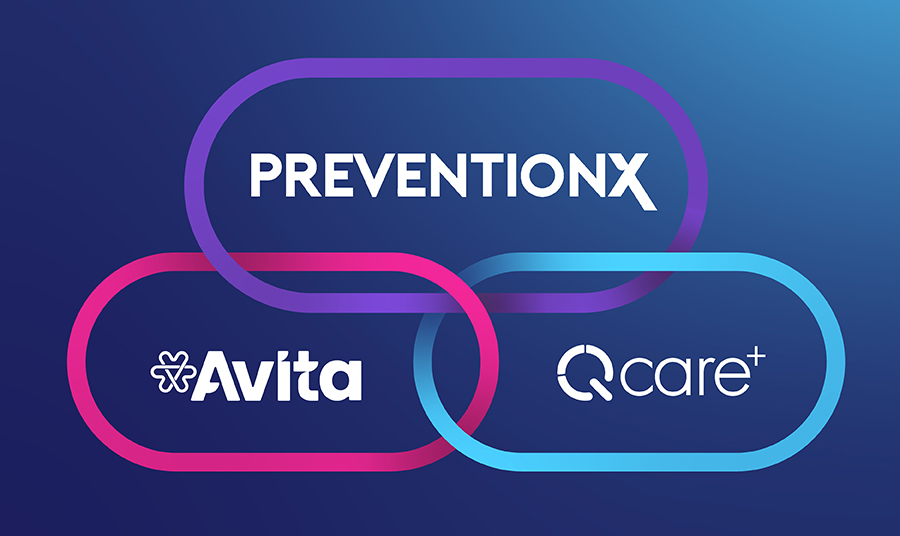Pop Quiz: Which of these statements are false?
A. The United States spends more on health care than any other developed nation. But when compared to 11 other high-income countries, the U.S. ranks last for access to care, health equity, and health outcomes. Case in point: Despite significant advances in HIV prevention and treatment in the last 40 years, profound, persistent disparities in access to this care have surfaced.
B. The U.S. health care system has particularly failed specific populations that routinely face barriers to care including stigma, provider access, and financial obstacles. For example, studies show that almost a sixth of LGBTQ+ adults in the U.S. report having experienced discrimination in a health care setting.
C. Community health centers (CHCs) bridge the health care gap for groups facing health disparities, serving over 30 million Americans. While 92% of CHCs report utilizing 340B drug discount program savings to increase care access for the underserved, the program is at risk of significant change if awareness of its value is not increased.
D. Sustained advocacy is critical to raising public, industry, and legislative education about issues critical to health equity and compassionate clinical care. Ensuring the true value of the 340B program is fully understood has never been more important.
Time’s up! The correct answer, of course, is none of them. Answers A-C are all true, which makes D more on point than ever. With this in mind, Avita CEO Michael Yount sat down and chatted with Glen Pietrandoni, the organization’s new chief advocacy officer. Up for discussion? Why it’s never been more important for covered entities to join the 340B advocacy movement, how organizations can get involved without a heavy lift, and what Avita is doing to lead the way.
Our covered entity partners represent the front lines in the fight for health equity and the removal of barriers that many of our patients face in accessing reliable health care. It's never been more important for them to share their voices.
- Michael Yount, Avita CEO
Bringing patients’ voices to the forefront
Michael: First off, Glen, congratulations on being named Avita’s inaugural chief advocacy officer. For over two years, you’ve been at the helm as Avita fights the good fight—helping people understand that health care is a human right and that supporting community health organizations is crucial to ending health inequities in the United States.
You’d be hard pressed to find an initiative that has a greater impact on helping covered entities stretch scarce federal resources, reach more underserved patients, and increase access to comprehensive care than the 340B program. Unfortunately, it has at times been misunderstood or come under attack by pharmaceutical manufacturers. Tell me a bit about how you originally entered the advocacy arena, and what led you to advocating for the 340B program.
Glen: Thanks, Michael. When it comes to advocacy work, I initially got involved in HIV advocacy as a young pharmacist because I noticed that some of my fellow pharmacists were afraid and uneducated when presented with patients who were living with HIV/AIDS. In fact, some pharmacists and technicians actually refused to serve this community. Others didn’t understand the complexities of the early combination therapies, drug interactions, and dosing/food schedules required at that time. People impacted by HIV needed help, and often looked to pharmacists for support, even before HIV drugs were available. So, I found myself advocating for that patient voice.
The HIV community was called out in the original legislation that set up the 340B program by allowing Ryan White clinics to qualify for 340B covered entity designation. The Ryan White program is a perfect example of the difference holistic care can make. Patient and clinical outcomes from the Ryan White program patient data are some of the best results in the country, which is a direct impact of its being supported by the 340B program. None of this would have been possible without advocacy work. It was bringing patients’ voices to the forefront that caused congress, pharmaceutical companies, and providers to step up.
We'll be on the ground fighting for continued access to the 340B program, as well as advancing health equity and stigma-free health care for patient populations across the nation. And we hope to see a lot of new and familiar faces along the way.
- Glen Pietrandoni, Avita Chief Advocacy Officer
Taking advocacy efforts to a whole new level
Michael: Avita has a rich history of advocating for core issues that affect our covered entity partners, patients, and communities. For almost two decades we’ve worked with trade associations, regulators, and elected officials to defend the 340B program, with the goal of advancing health equity for those who sometimes don’t have a seat at the table.
You and I are both members of Community Voices for 340B (CV340B), and Avita sponsors their efforts to rally others behind the cause. We’re also honored to sponsor 340B Report, which in my opinion is the leading source of real-time, objective news about what’s going on in the industry. Avita supports or participates in more than 40 health care education and advocacy events each year in collaboration with our covered entity and community partners.
You’ve worked with the White House National Office of AIDS Policy, the Centers for Disease Control and Prevention, and the U.S. Department of Health and Human Services, not to mention your continual efforts to keep the doors of communication open with drug manufacturers.
And we just announced a few months ago the addition of former surgeon general Dr. Jerome Adams to the Avita Board of Directors. Dr. Adams is a longtime supporter of the 340B program and recently urged covered entities to “make sure we are fighting for the people the system serves.”
Glen: It’s true, Avita takes our advocacy work to an entirely different level. Part of that, from the pharmacy services side, is that we’re not as distracted as traditional retail pharmacies, which are trying to meet the needs of all customers and sell everything from prescriptions to cigarettes.
We’re different in that we’ve really homed in on building relationships with covered entities and patients who are fighting every day for the right to health equity. Doing so requires a careful mix of a compassionate care model, clinical expertise, and proficiency in the 340B program—including having what it takes to help our covered entity partners strategically navigate its shifting tides.
Read the full article, including a list of ways your covered entity can easily get involved in the advocacy movement, in 340B Report here.




